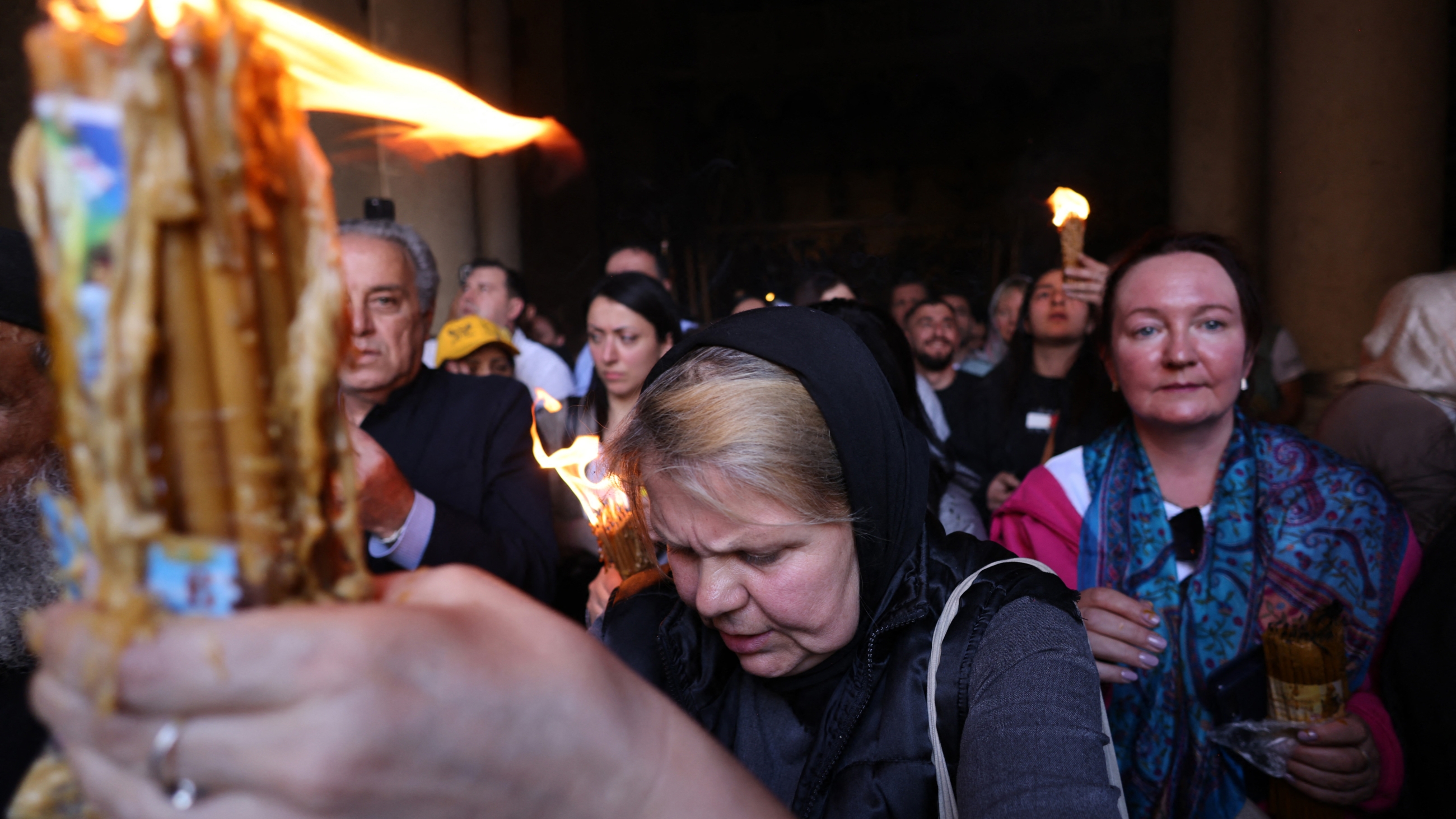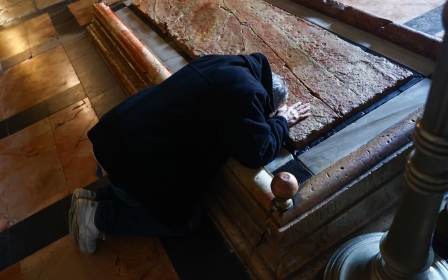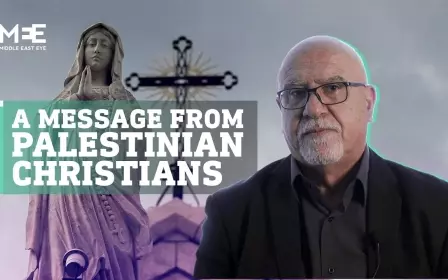Israel: Spitting on Christians in Jerusalem ‘not criminal’, says Ben Gvir

Israelis were spotted spitting in the direction of Christians in occupied East Jerusalem again on Wednesday, days after similar attacks, defended by the national security minister as "not criminal", led to widespread condemnation.
According to Al Araby TV, the latest incidents targeted Christian clergy in the Old City, where thousands of Israelis are participating in marches marking the week-long Sukkot holiday.
Israeli police said it has detained at least four people involved in the spitting incidents. A fifth person was detained for suspected spitting at Christians on Monday.
However, Itamar Ben Gvir, Israel’s national security minister, who oversees the police, said in an interview with Army Radio that spitting at Christians was “not a criminal case” and that not everything “justifies an arrest”.
He said the incidents were “deserving of every condemnation” but urged people to “stop slandering Israel”.
New MEE newsletter: Jerusalem Dispatch
Sign up to get the latest insights and analysis on Israel-Palestine, alongside Turkey Unpacked and other MEE newsletters
Ben Gvir had previously defended the act of spitting on Christians as “an ancient Jewish custom”.
The claim was echoed on Tuesday by Israeli settler Elisha Yered, who is suspected of involvement in the killing of a Palestinian teenager in August.
Yered said on X, formerly known as Twitter, that “spitting near priests or churches is an ancient Jewish custom”.
"Perhaps under the influence of Western culture we have somewhat forgotten what Christianity is, but I think the millions of Jews who suffered in exile from the Crusades, the torture of the [Spanish] Inquisition, blood libels and mass pogroms – will never forget," he added.
Some of those arrested on Wednesday were students of Rabbi Natan Rothman, who was leading a procession through the Old City, according to Israeli Channel 12.
He is the brother of far-right lawmaker Simcha Rothman, who was also participating in the procession.
The MP told Ynet news that the spitting acts were “worthy of condemnation” but were “blown out of proportion”.
Pope Francis 'furious'
The arrests follow widespread outrage at footage shared earlier this week showing Israelis spitting on or near churches in Jerusalem.
Pope Francis is said to be “furious” over the incidents, according to Wadie Abu Nassar, adviser and former spokesperson of the Assembly of Catholic Ordinaries of the Holy Land.
The Palestinian foreign ministry said in a statement the repeated incidents of spitting on Christians reflect the Israeli occupation’s “culture of hatred and racism”.
Amid the mounting criticism, Israeli officials issued statements condemning anti-Christian acts by Israelis and vowed to protect freedom of worship.
“I strongly condemn any attempt to intimidate worshippers, and I am committed to taking immediate and decisive action against it,” he added, without mentioning Christians.
Youssef Daher, a coordinator with the World Council of Churches in Jerusalem, accused Israeli authorities of encouraging assaults on Christians.
In an interview with Anadolu Agency, Daher said police negligence and statements by Israeli cabinet ministers were contributing to the growing phenomenon.
Harassment by Israelis against Christians, including spitting, is not new. However, it has spiked under the new government, which took office late last year and has been described as the most right-wing in the country's history.
The attacks - committed mostly by ultranationalists or settlers, including soldiers - range from trespassing on churches and spitting on churchgoers to destruction of Christian symbols and vandalising graves, among other acts.
Police have reportedly not been taking the attacks seriously, refusing to treat the incidents as part of a trend and downplaying the culprits' motives by saying they are carried out due to "mental illness".
This article is available in French on Middle East Eye French edition.
Middle East Eye delivers independent and unrivalled coverage and analysis of the Middle East, North Africa and beyond. To learn more about republishing this content and the associated fees, please fill out this form. More about MEE can be found here.




